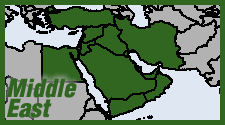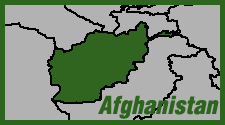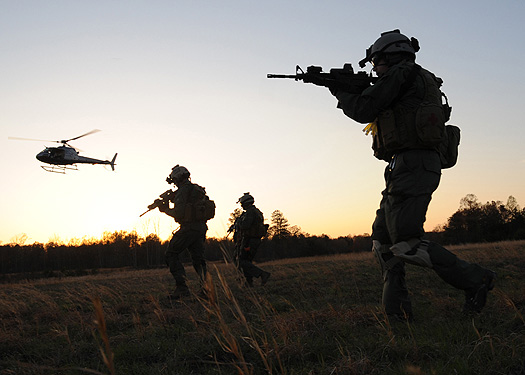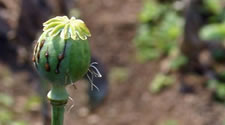 The past year has seen a spate of dangerous brinkmanship in the Persian Gulf, with Iran and US naval forces along with those of the Gulf's oil-rich Arab mini-states playing chicken over the strategic choke-point of the Strait of Hormuz. But in addition to this show-down over a global oil outlet, the Gulf has seen escalating militarization in the guise of narcotics enforcement. Bahrain's Gulf Daily News on Nov. 26 ran a story boasting of the exploits of a 29-nation Combined Maritime Forces group, based at the petro-kingdom's sprawling US Navy base and commanded by Capt. Robert Slaven of the Royal Australian Navy. While it claims to have "considerably reduced the number of terrorist attacks in the region" over the past decade, it's most concrete gains are hashish and heroin seizures.
The past year has seen a spate of dangerous brinkmanship in the Persian Gulf, with Iran and US naval forces along with those of the Gulf's oil-rich Arab mini-states playing chicken over the strategic choke-point of the Strait of Hormuz. But in addition to this show-down over a global oil outlet, the Gulf has seen escalating militarization in the guise of narcotics enforcement. Bahrain's Gulf Daily News on Nov. 26 ran a story boasting of the exploits of a 29-nation Combined Maritime Forces group, based at the petro-kingdom's sprawling US Navy base and commanded by Capt. Robert Slaven of the Royal Australian Navy. While it claims to have "considerably reduced the number of terrorist attacks in the region" over the past decade, it's most concrete gains are hashish and heroin seizures.

 The latest Afghanistan Opium Survey (
The latest Afghanistan Opium Survey ( The most enlightened cannabis connoisseurs—those who still have a link back to the values that defined the hippie culture—tend to be conscious consumers when it comes to food or computers or whatnot. They may buy organic tomatoes, boycott Taco Bell to support exploited farm workers in Florida, and petition Apple about the brutal conditions in their Chinese assembly plants. But do they pay as much attention to the source of their preferred smoking herb?
The most enlightened cannabis connoisseurs—those who still have a link back to the values that defined the hippie culture—tend to be conscious consumers when it comes to food or computers or whatnot. They may buy organic tomatoes, boycott Taco Bell to support exploited farm workers in Florida, and petition Apple about the brutal conditions in their Chinese assembly plants. But do they pay as much attention to the source of their preferred smoking herb?  The UK's Royal Air Force on Aug. 22 boasted that its Reaper drones helped uncover a stash of heroin with an estimated street value of over £10 million. The Reapers, remotely piloted by members of the RAF's 39 Squadron, tracked two vehicles after determining that they were likely to contain the hidden compartments typically used by drug traffickers. One vehicle was low on its suspension, while the rear of an accompanying flatbed truck appeared too shallow, suggesting a hidden storage area. A raid on the two vehicles by Afghan National Security Forces and the US Marine Corps led to the seizure of 1,208 kilograms of dry opium and 59 kilograms of processed heroin. (
The UK's Royal Air Force on Aug. 22 boasted that its Reaper drones helped uncover a stash of heroin with an estimated street value of over £10 million. The Reapers, remotely piloted by members of the RAF's 39 Squadron, tracked two vehicles after determining that they were likely to contain the hidden compartments typically used by drug traffickers. One vehicle was low on its suspension, while the rear of an accompanying flatbed truck appeared too shallow, suggesting a hidden storage area. A raid on the two vehicles by Afghan National Security Forces and the US Marine Corps led to the seizure of 1,208 kilograms of dry opium and 59 kilograms of processed heroin. (





Recent comments
4 weeks 3 days ago
4 weeks 4 days ago
7 weeks 4 days ago
8 weeks 4 days ago
12 weeks 4 days ago
16 weeks 2 days ago
20 weeks 3 days ago
21 weeks 1 day ago
31 weeks 1 day ago
35 weeks 1 day ago